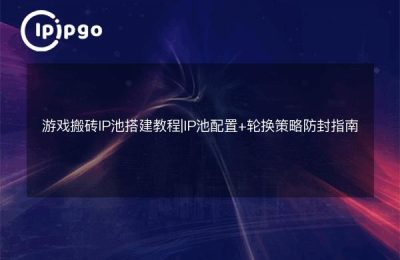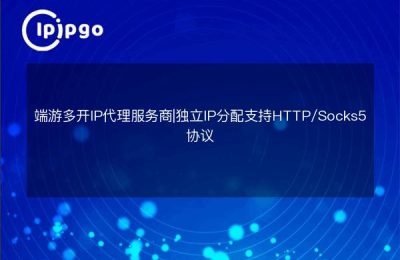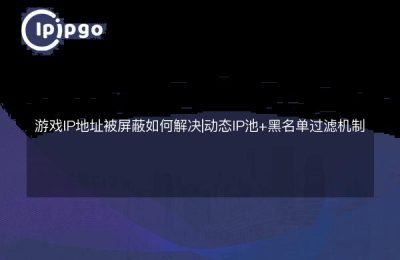
Protecting privacy and optimizing network performance are becoming increasingly important in the modern Internet. HTTP proxy servers, as a commonly used network tool, provide us with many conveniences. Today, let's delve into what HTTP proxy server is, as well as its working principle and application scenarios.
What is an HTTP proxy server?
An HTTP proxy server is a type of intermediate server that passes HTTP requests and responses between a client (such as your computer or cell phone) and a destination server (such as a website you are visiting). When you access a website through an HTTP proxy server, your request is first sent to the proxy server, which then forwards it to the target website. The response from the target site is also returned to the proxy server first, and then forwarded to you by the proxy server.
Simply put, an HTTP proxy server acts as a "middleman" between you and the target website, helping you to hide your true identity and providing additional functionality and security.
How HTTP proxy servers work
The working principle of HTTP proxy server is relatively simple and is mainly divided into the following steps:
Step 1: Client sends request
When you type a URL into your browser and press enter, the browser generates an HTTP request and sends this request to a configured HTTP proxy server.
Step 2: Proxy server handles the request
The proxy server receives your HTTP request and processes it. It may check the legitimacy of the request, add additional headers, or do a cache lookup.
Step 3: Proxy server forwards the request
After processing the request, the proxy server forwards your request to the target server. The target server receives the request and generates the appropriate HTTP response.
Step 4: The proxy server returns a response
The HTTP response returned by the target server will first reach the proxy server, which may process the response further, such as caching the response content, and then return the final response to you.
Advantages of HTTP proxy servers
There are many advantages to using an HTTP proxy server, here are a few of the key points:
Enhanced privacy and security
With an HTTP proxy server, your real IP address can be hidden and the target website can only see the IP address of the proxy server. This greatly improves your privacy protection. In addition, proxy servers can filter malicious content and provide additional security.
Improve network performance
High-quality HTTP proxy servers usually provide a caching feature that stores frequently accessed content on the proxy server. In this way, when you access the same content again, the proxy server can return the cached content directly, reducing the latency of requests and improving network performance.
How to choose a high quality HTTP proxy server?
Choosing a high-quality HTTP proxy server is key to ensuring a good web experience. Here are a few selection criteria:
Speed and Stability
Speed and stability are the primary considerations when choosing an HTTP proxy server. A high-quality proxy server should be able to provide a high-speed, stable Internet connection, avoiding frequent dropouts and slowdowns.
Privacy and Security
Protect your personal information by ensuring that your proxy service provider does not record your online activities. Security can be further enhanced by choosing a proxy service that offers encrypted connections.
Coverage
Choosing a proxy service provider with a wide range of coverage ensures that you will be able to access content from different regions. Coverage is especially important when you need to access content that is restricted in a specific region.
User support and quality of service
Good user support and service quality are also important criteria for choosing an HTTP proxy server. Ensuring that the service provider offers timely technical support and problem solutions can give you more peace of mind during use.
HTTP proxy server application scenarios
There are many practical application scenarios for HTTP proxy servers, here are a few common examples:
Enterprise Network Management
Many organizations use HTTP proxy servers to manage and monitor their employees' online activities, filter bad content, and improve network security.
SEO and Internet Marketing
SEOs and internet marketers use HTTP proxy servers to simulate user behavior in different regions for market research and competitive analysis.
Personal privacy protection
Individual users use HTTP proxy servers to hide their real IP addresses, protect privacy, and avoid being tracked and monitored.
concluding remarks
HTTP proxy server is a very useful web tool that can enhance your privacy protection and web performance. By choosing a high-quality HTTP proxy server, you can enjoy a safer and faster web experience.
Hopefully, through this article, you have a better understanding of HTTP proxy servers and can easily get started using them. Choose a suitable HTTP proxy server to make your online life safer and more convenient.








